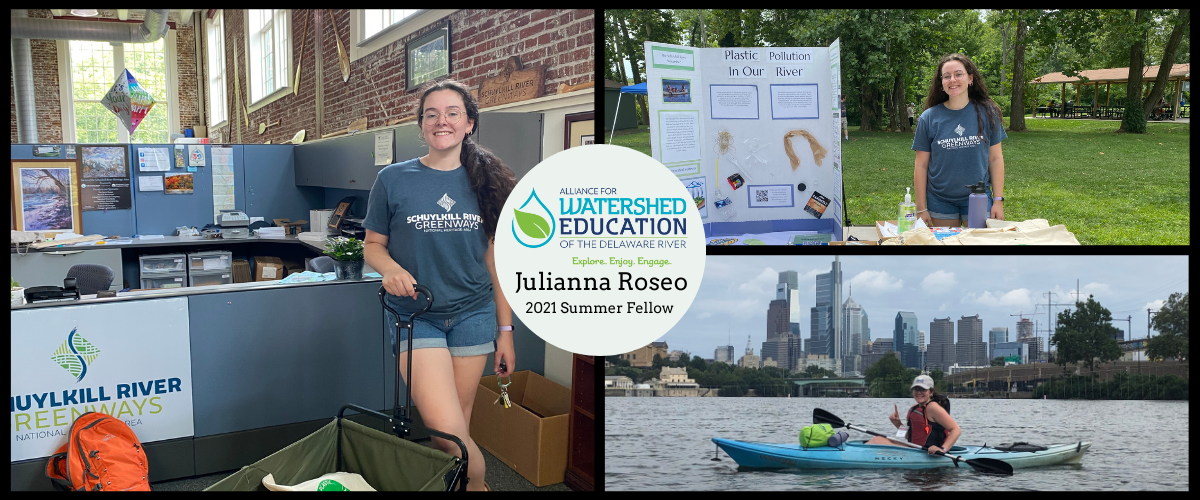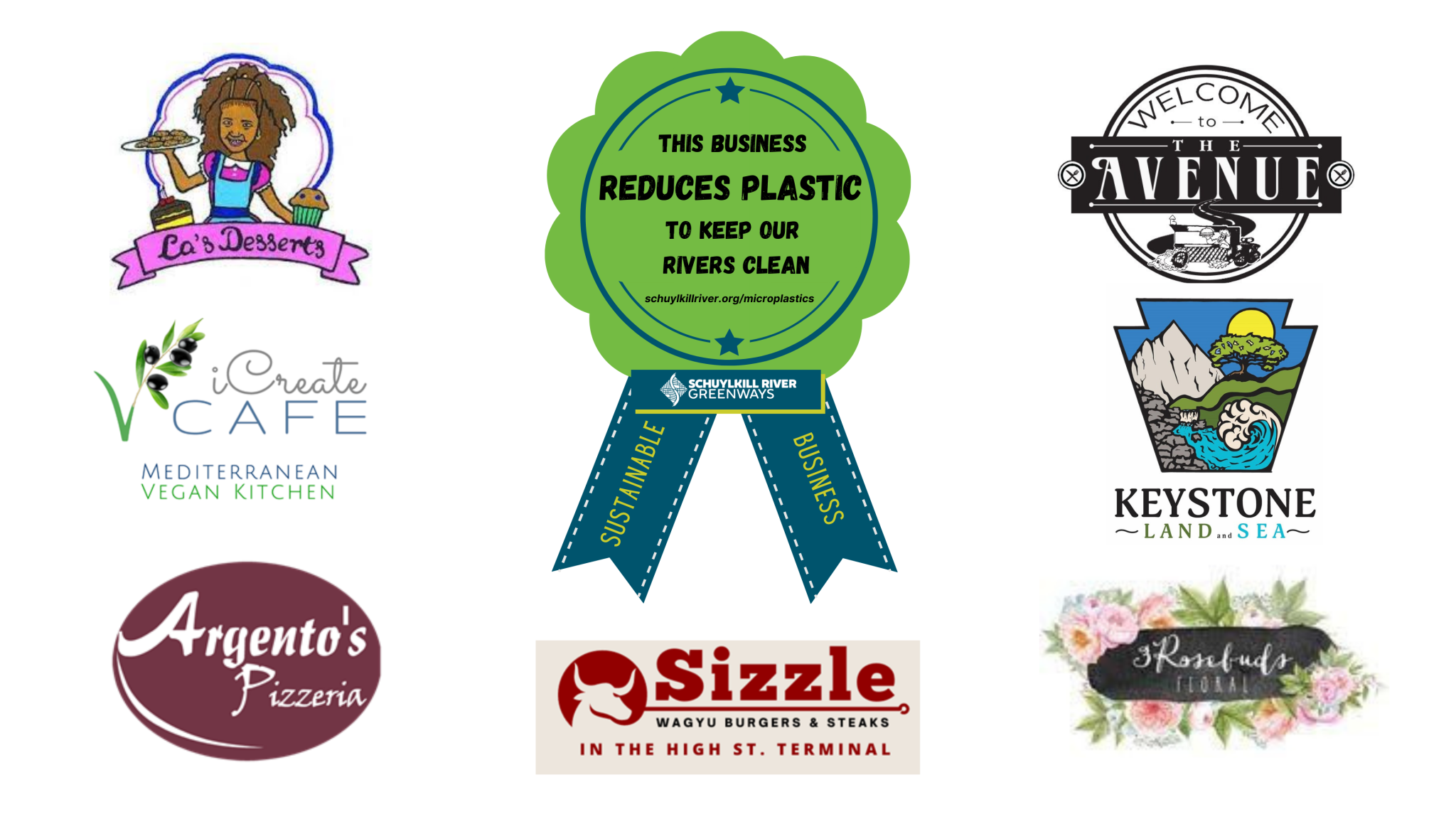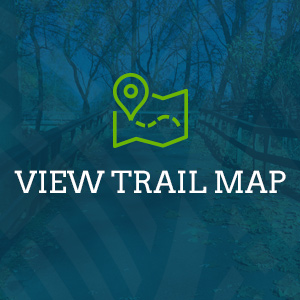"By 2050 there will be more plastic in the ocean than fish"
- PennEnvironment Pictured here: 2021 Summer Fellow, Julianna Roseo, Environmental Studies Major at Temple University. In addition to this informational page, Julianna created an individual and business pledge, coordinated a Community Day event, and worked to educate people about the impact of microplastics in the Schuylkill through her participation at SRG events.
Pictured here: 2021 Summer Fellow, Julianna Roseo, Environmental Studies Major at Temple University. In addition to this informational page, Julianna created an individual and business pledge, coordinated a Community Day event, and worked to educate people about the impact of microplastics in the Schuylkill through her participation at SRG events.
The Schuylkill River Watershed
The Schuylkill River Watershed is the land area surrounding the Schuylkill River that feeds the Schuylkill its water. When precipitation falls in our area, the water flows over land, streets, forests, and into streams and creeks, eventually making its way to the Schuylkill River. Almost 2 million people living in Schuylkill, Berks, Chester, Montgomery, and Philadelphia counties draw water from the Schuylkill for daily use.
Pollution in the Schuylkill River
Plastic pollution is a threat to our waterways. It harms wildlife and can even spread disease. The plastic in the Sch
uylkill River contaminates the water for drinking or recreational purposes. According to PennEnvironment, in a single year, the Philadelphia Water Department removes 44 tons of trash from a 32 mile stretch of the Schuylkill and Delaware Rivers, 56% of which was plastic waste. PennEnvironment has also found that in Pennsylvania the most visible litter is plastic.
Microplastics

Micro plastics mixed in the sand in Famara beach, Lanzarote
Recently we have learned some alarming information about the further impact of plastic pollution: Microplastics. Th
ey are in our clothes, our food packaging and every piece of plastic we use. Microplastics are pieces of plastic smaller than 5mm and they are the product of larger pieces of plastic breaking down into smaller pieces.
These pose a threat to us because organisms that live in water systems ingest these tiny pieces of plastic, and when we eat fish, we ingest plastic. This presents us with unprecedented issues, since we have no idea what the long-term effect of plastic ingestion is.
The PennEnvironment Research & Policy Center sampled over 50 of Pennsylvania’s most iconic rivers, l
akes, and stre
ams. The center found microplastics in 100% of the samples. These findings were published in a report called: Microplastics in Pennsylvania: a Survey of Waterways
How can you protect the Schuylkill River from plastic pollution? 
One of the main ways we can reduce plastic pollution, is to use less single-use plastic. Reducing our use of single use plastic, would reduce the waste we produce and would reduce the pollution that ends up in the Schuylkill River. We can also help to reduce the amount of litter in the river by recycling and picking up litter.
Share your efforts on social media and use #PlasticFreeSchuylkill.
Take the Pledge Against Plastic!Businesses Can Make a Pledge Against Plastic
Businesses can make a pledge to better protect the Schuylkill River Watershed and surrounding environment by adopting a new habit. Every business who completes the pledge will receive a certificate to display, as well as have their business name and logo recognized on this website.
Business Pledge Against Plastic











